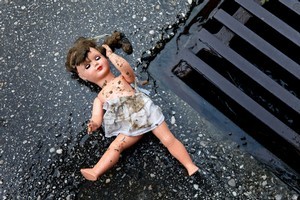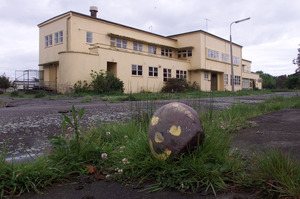A new study shows ECT (electroconvulsive therapy) causes brain damage? That's not what you will find in the many promotional press releases published in the mainstream media. As usual, biopsychiatric press releases always come out before the research articles are easily available, making critical analysis impossible until the wave of false promotional euphoria has passed. The Bloomberg Newsheadline crowed: "Shock Therapy's Effect on Depression Discovered, Researchers Say." The Huffington Post news headline, posted March 20, 2012 declared "Shock Therapy's Effect On Depressed Brain Explained by New Electroconvulsive Therapy Study." Time Healthland's article was titled "How Electroconvulsive Therapy Works for Depression." Fox News' headline for the Reuters news story they carried said: "Study shows how electrotherapy may treat depression."
The media coverage was unquestioning and wholly positive. ECT is touted as the best treatment for depression and we are told that science has finally, after more than 70 years, found out how it works. The method used was bilateral ECT -- the most grossly damaging and most commonly used form of the treatment. Both electrodes are placed over the temples, overlapping the frontal lobes of the brain. The most intensive surge of electricity hits the memory centers in the tip of the temporal lobes and affects the highest human functions in the frontal lobes.
The title of the research paper actually tells the story: "Electroconvulsive therapy reduces frontal cortical connectivity in severe depressive disorder." The specific area is the "dorsolateral prefrontal cortical region." This is the same area assaulted by surgical lobotomy. It contains nerve trunks connecting the rest of the brain with the frontal lobes -- the seat of our capacity to be thoughtful, insightful, loving, and creative. Think of what it takes to be a person; all of that requires the unimpaired functioning and connectivity of the frontal lobes of your brain.
Using a functional MRI in nine patients, the authors of the study conclude, "Our results show that ECT has lasting effects on the functional architecture of the brain." The result of these lasting effects is "decrease in functional connectivity" with other parts of the brain. In other words, the frontal lobes are cut off from the rest of the brain. The authors call this "disconnectivity." Does this sound familiar? It is a "lasting" frontal lobotomy.
This new study contradicts claims by shock advocates such as psychiatrist David Healy that ECT does not cause brain damage.
The report argues that this ECT effect supports the idea that depressive patients have too much activity in their frontal lobes and are returned to normal bv damaging the offending area of the brain. Psychiatry frequently takes this position. For example, antipsychotic drugs (which four of the nine patients were taking) also reduce the function of the frontal lobes, in this case by suppressing the main trunk nerves from deeper in the brain to the frontal lobes (dopamine neurotransmission). Proponents of the drugs then claim that the patients have an excess of activity in these nerve trunks, so that the patient is helped by damaging the region.
The word "damage" is never used in this study. But what else are these "lasting effects on the functional architecture of the brain," other than a manifestation of ECT-induced brain damage in the before and after shock treatment MRIs that were done? The study is so poorly reported that we only know that the MRIs were conducted sometime "after," presumably very soon after the ECT. We can only hope that these victims of ECT will recover with time, but the most extensive long-term follow-up study indicates that most ECT patients will never recover from the damage in the form of persistent severe mental deficits.
Since the patients had all been heavily medicated in the past, and were continued on medications and given anesthesia during the ECT -- a combination of traumatic effects probably complicate and add to the brain damage to the frontal lobes.
For a long time now, I have been scientifically demonstrating that ECT is a closed-head injury in the form of an electrical lobotomy. Now we find that the ECT damage is sufficiently gross to show up on an MRI -- but we are told it's good for the patients. This is what I call "the brain-disabling principle of psychiatric treatment." Lobotomy, ECT and psychiatric drugs all share the common factor that they "work" by damaging the brain and suppressing brain function.
The authors of the study note that antidepressants probably work by doing the same thing -- producing "disconnectivity" between emotion-regulating centers in the brain.
From its inception, psychiatry has promoted brain damage as treatment. Nothing has changed in this regard except the arguments are more subtle and lobotomy is now being called "disconnectivity."
The authors argue that the patients are helped because they do better on a checklist of depressive symptoms. In this study, the checklist was administered after the last ECT, the period of time when the patient's brain is most acutely disturbed and the individual is frequently disoriented and even delirious. It would be similar to giving a psychological test to someone right after a very severe series of concussions.
After brain injury -- especially to the highest centers which express emotional awareness, self-insight, and judgment -- individuals stop reporting their upset or distressing feelings. They have either lost awareness or they are too apathetic to care anymore. That, again, is the lobotomy effect. Apathy and indifference is the final result of all of the most potent psychiatric treatments.
After brain injury -- especially to the highest centers which express emotional awareness, self-insight, and judgment -- individuals stop reporting their upset or distressing feelings. They have either lost awareness or they are too apathetic to care anymore. That, again, is the lobotomy effect. Apathy and indifference is the final result of all of the most potent psychiatric treatments.
Peter R. Breggin, MD, is a psychiatrist in private practice in Ithaca, New York, and the author of more than 20 books, including The Heart of Being Helpful, Toxic Psychiatry, and Medication Madness. On April 13-15, 2012, Dr. Breggin and Mrs. Breggin welcome professionals and the public to their second Empathic Therapy Conference in Syracuse, New York. Meet the Breggins and listen to dozens of other incredible presenters talk about the hazards of modern psychiatry and the benefits of caring therapeutic approaches to emotional suffering. You can learn about and sign up for this inspiring and confidence-building conference at www.EmpathicTherapy.org.
For more by Dr. Peter Breggin, click here.



